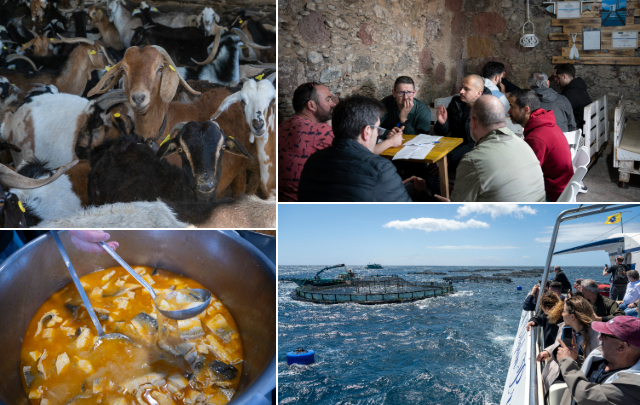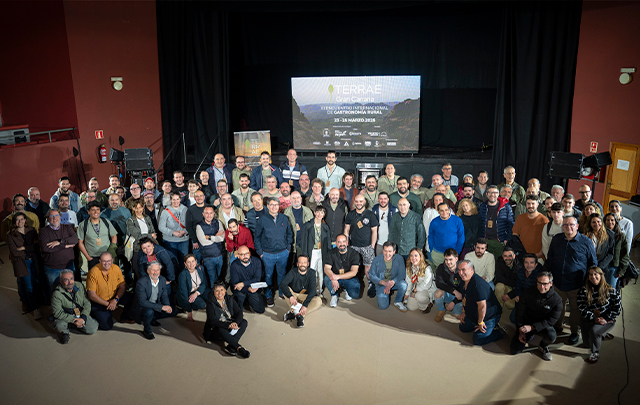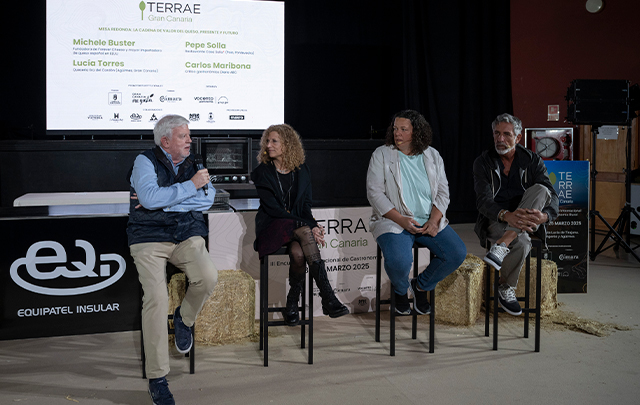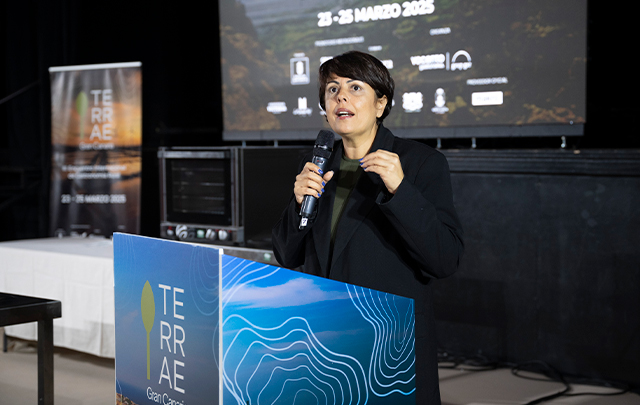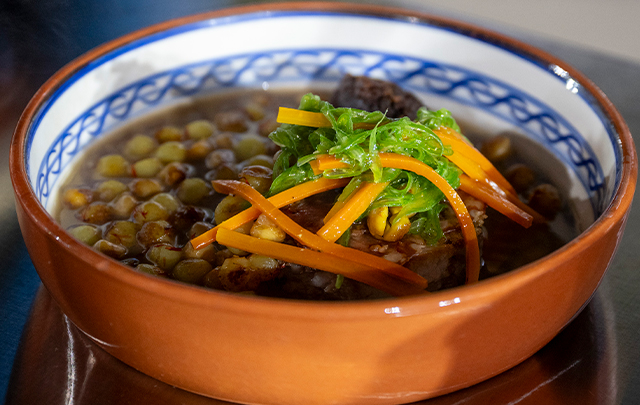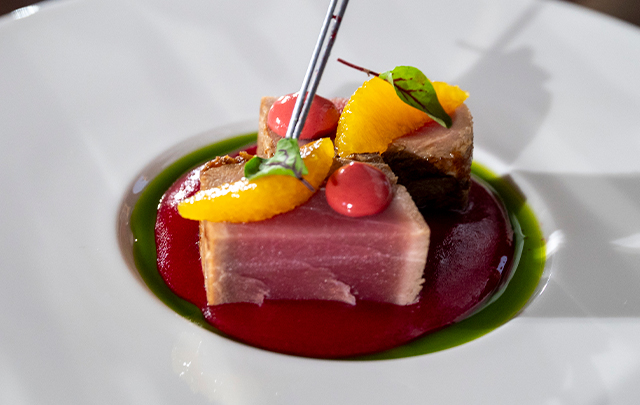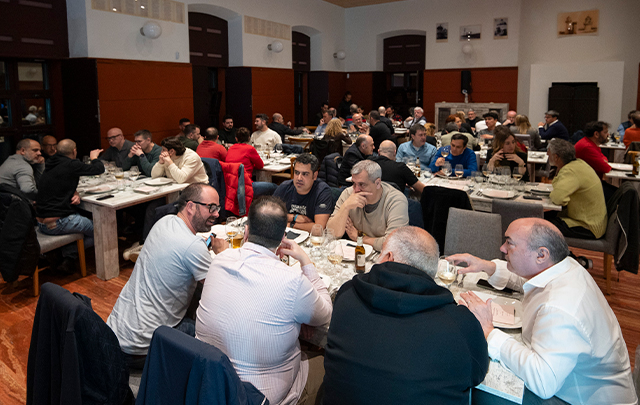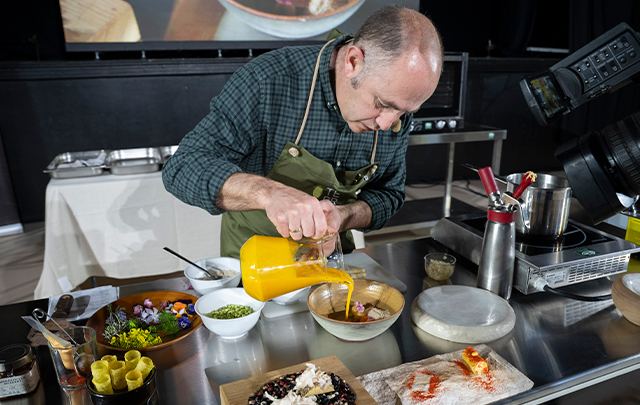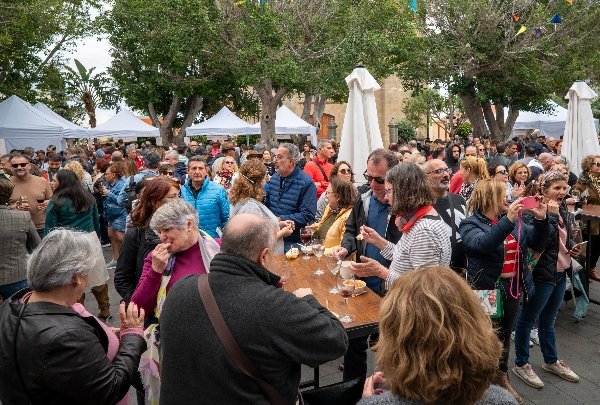News
Successful diversification in rural gastronomy
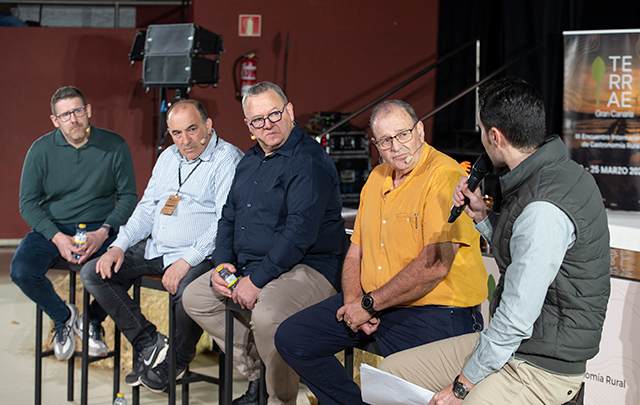
Terrae discusses the keys to squaring the circle in business and becoming more sustainable and viable in rural environments. Getting customers in the door can sometimes be very difficult in rural areas and requires something extra, such as setting up a hotel, offering a wine experience or a visit to a livestock farm, or even a restaurant that grows out of the livestock farm. The many faces of a multifaceted business. How chefs and producers have successfully diversified their businesses was discussed at an interesting round table.
Our project is very circular, experimental and destination-based, and people come to us not just to eat, but to have a complete experience,' said José Gordón, director of Bodega El Capricho in the municipality of Jiménez de Jamuz in Leon. To this end, we try to make the most of all the possibilities offered by the estate, in a land that we love dearly, from the woods of its holm oaks, where our oxen scratch and eat the shoots,' he argued. El Capricho dates back to the beginning of the 20th century, when José's grandfather, Segundo, dug a cave to create a cellar that also served as a snack bar during the summer months.Years later, his grandson has turned this place into a temple of meat, where he selects, rears and cooks beef, creating a unique style that has won him numerous awards. But when the project is born of love, generosity and passion, sometimes you don't ask yourself if it's profitable or not; then you see that if you don't use all the resources, you won't get there," he argued. That is why they have activated other lines of work, "such as the cutting plant, where we are developing several research projects to make the most of each muscle, and another to make cosmetics with the fats. Because if we only sold chops and made hamburgers with the rest, our work would not be sustainable, because our animals stay on the farm for about 8 or 10 years," he admits.
José Ignacio Jauregui, a pioneer in the rescue of the black pig, an indigenous pig from northern Navarre and the French Basque Country that was on the verge of extinction in the 1980s, also referred to the weight of fixed assets. We started 23 years ago as a hobby, but there came a time when we needed a lot of investment to build a factory and we needed to sell more product, but we didn't have enough resources. So we opened a restaurant where we serve menus based on our pigs, and it also served as a marketing strategy to make us known". This is how Maskarada* (Lekunberri, Navarre) was born, "which, above all, gives us liquidity, because our pigs spend four years on the farm, and this is a very large fixed asset that we can afford thanks to the restaurant. Thanks to this, we now produce 2,500 units a year, half the world's production of this breed, and we have 180 customers and 12 Michelin stars who consume our product,' he reveals.
As a third-generation restaurateur, Vicent Guimerà founded L'Antic Molí in 2004, which has been awarded a Michelin star and a Green Michelin star for its commitment to sustainability. From the beginning, we chose the most modest producers, but when the pandemic hit, we almost went bankrupt, and so the Mans Essència project was born as a plan for the future, for when normality returned, for how I wanted to think and cook, for what I wanted from my territory,' he recalls. This was the beginning of a gastronomic experience of 20 dishes, where everything on the table is made by artisans, even the crockery for each dish. Another part of the project was the regeneration of his grandparents' farms, "where we grow all our vegetables and have recovered seeds that were lost in the Delta, such as tomatoes and beans. We cook with what the land gives us, so the idea is that each plot defines one of our menus,' he explains.
Finally, Jerónimo Marrero is the owner of the family winery, La Montaña, in Vega de San Mateo, which was started by his father, Francisco Marrero, as a hobby to make homemade wines from a small amount of grapes he harvested himself. Now Himar Marrero, Jerónimo's son and Francisco's grandson, is involved in the winery, bringing new ideas and cautiously introducing new technologies to produce an average of 10,000 litres of wine. They grow their vines organically and make wine by gravity to avoid putting pressure on the grapes. In their case, diversification has come with the installation of a small apiary of authentic Canarian bees, "which we are trying to recover so that it is also something characteristic of our brand", with which they make honey that is used in some of the dishes. In the midst of all this, we are trying to promote our traditional cuisine, using products with zero miles, including those we produce ourselves, in a very rural and very personal environment," he concludes.


